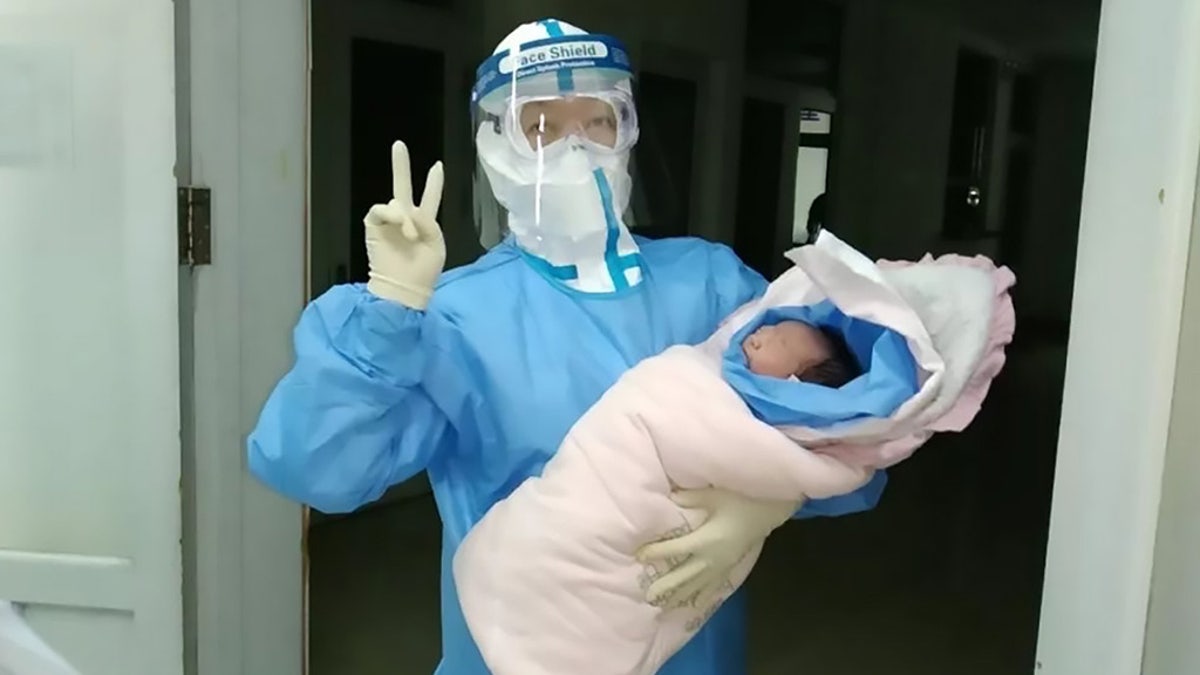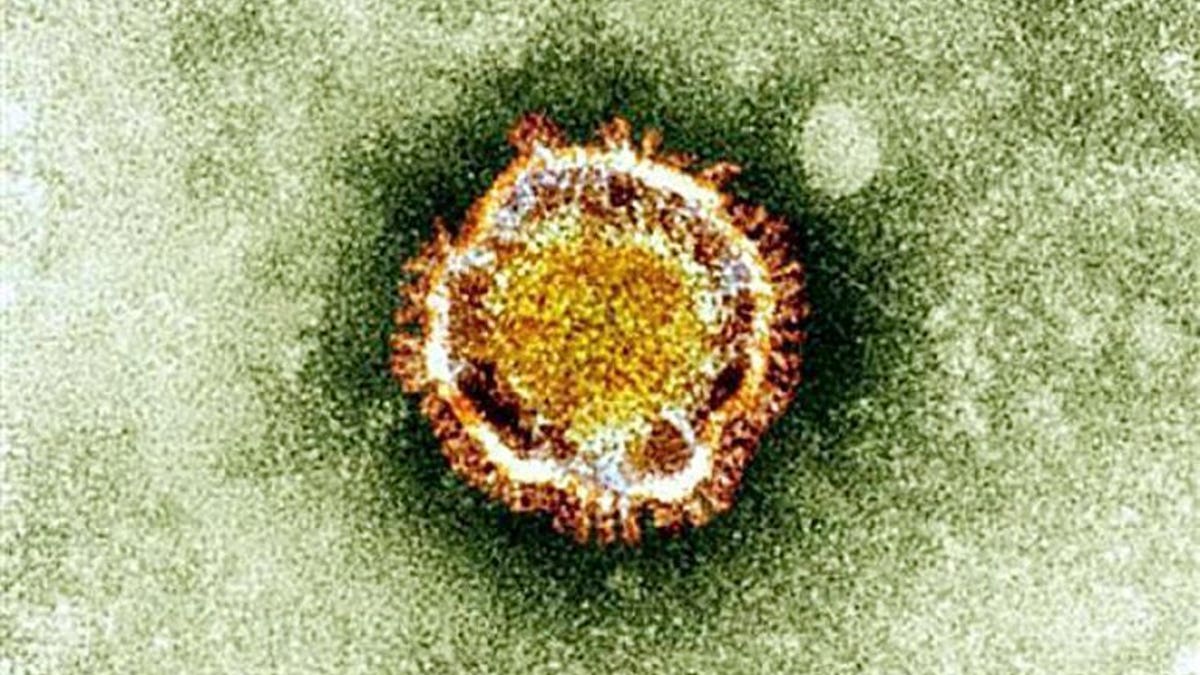Call for help, retired doctors and medical students come together to help fight COVID-19
The increasing number of coronavirus cases has medical professionals of all ages mobilizing to lend a helping hand. Several universities across the country are allowing their medical students to graduate early, while at the same time retirees are heading back to work. It's demonstrating the spirit of the times, showing that we really will get through this together.
Get all the latest news on coronavirus and more delivered daily to your inbox. Sign up here.
At first, doctors said that the coronavirus was not a risk to pregnant women or the very young. But now – as the pandemic escalates and experts scramble to sketch a more in-depth understanding – some are cautioning there are still more unknowns than there are knowns.
“Giving birth in the middle of a pandemic without question has added anxiety to an already stressful situation,” Dr. Edith Bracho-Sanchez, assistant professor of pediatrics at New York’s Columbia University Irving Medical Center, told Fox News. “Our hospitals have worked hard to screen moms, babies, and visitors for symptoms, to test when appropriate and to closely monitor those who screen or test positive.”
LOUISIANA NEWBORN DIES AFTER CORONAVIRUS-POSITIVE MOM GOES INTO PRETERM LABOR
Images and anecdotes from around the globe in recent weeks – depicting one’s first foray into life outside – are a wincing reflection of our sobering new world at the grips of the most significant health crisis in more than a century.
A newborn baby girl in Bangkok, Thailand, was wrapped in a onesie and a large, clear protective face shield. Parents on all coasts of the U.S. and Europe being forced to only FaceTime with their tiny, premature arrivals – unable to be physically beside them as they cocoon in neonatal intensive care units.
And a collective heartbreak rippled through much of the U.S. on Monday, after it was revealed that an expecting Louisiana mother, who was hospitalized with coronavirus, went into preterm labor at 22 weeks. Her child, not even a day old, did not make it. While the incident remains under investigation and the baby did not test positive, it is classified as a coronavirus-related death as it has been asserted that the early delivery was brought on by the contagion.
Previous studies pertaining to related respiratory diseases, known as SARS and MERS, also indicated that the contagion could induce a miscarriage or early labor.
WOMEN AND CHILDREN AT HIGHER RISK OF VIOLENCE AND SEXUAL ABUSE DURING CORONAVIRUS LOCKDOWN
Furthermore, at least two women in New York, per the Columbia University Medical Center, who had the virus – officially called COVID-19 – promptly deteriorated in the hours after giving birth. While their babies were not infected, the moms spent their first precious bonding moments fighting for their lives in the intensive care unit.

Pic Shows: The newborn girl delivered by C-section at designated coronavirus treatment facility Harbin Sixth People's Hospital; This is the healthy baby girl born in quarantine to a mother carrying the deadly Wuhan coronavirus and delivered by medics wearing full hazmat suits who were later themselves isolated at a precaution.
Given the newness of the disease, which was barely heard of just a few months ago, much of the information being dispersed by scientists and medical experts are fast becoming outdated as new information, models and anomalies emerge. Next to nothing about the illness can be considered conclusive. Data is preliminary at best, and there is no data regarding women who are infected with coronavirus during their first trimester.
“So far, we believe the virus is not transmitted from mom to baby during pregnancy, and although there have been some reports that it could be, the data is not conclusive,” Bracho-Sanchez noted. “But it is important to mention we are early in understanding this virus, and pregnant women still need to take precautions. To be clear, in the vast majority of cases, the data shows moms with COVID-19 are delivering healthy babies at term or a week or two before term."
Nonetheless, caution for all expectant moms is advised irrespective of the pregnancy stage – not only given how little is known but given that pregnancy lowers one’s immune system and makes them more vulnerable to picking up ailments.
And the ripple effects for expectant mothers, as a result of the global health catastrophe, are growing in more ways than one.
“People, in general, are thinking twice as to whether they should schedule medical appointments and be in contact with hospitals or clinics as they are afraid of becoming infected with the novel coronavirus. On the other hand, pregnant women still need to have regular prenatal care and need to be in contact with their OBs throughout this time,” stressed Dr. Karin Nielsen-Saines, a professor of clinical pediatrics at David Geffen School of Medicine at UCLA, Division of Infectious Diseases, Department of Pediatrics and a member of the American Pediatric Society (APS). “Some hospital settings are implementing testing of all admitted patients for this virus, including pregnant women admitted for delivery in order to reduce potential exposures to staff and to vulnerable newborn infants. This is a time where everything is in flux, and guidelines keep changing.”
HOW IS THE CORONAVIRUS MUTATING INTO DIFFERENT STRAINS?
The ravishing pandemic has also left hospitals and clinics countrywide scrambling to alter policies to protect further spread and limit who is allowed to enter a hospital. Last month in New York, the global epicenter of the coronavirus onslaught, hospitals banned others from being present in a delivering room while a mother was giving birth. However, after some outcry, authorities overturned the ruling and currently allow one support person to be by her side.
In some hospitals, because of the surge of patients and being at full capacity, the partners are being limited on being there for the delivery or around the wards if the patient is pre-or post-delivery,” explained Dr. Hansa Bhargava, WebMD’s senior medical director. “This is hard for moms-to-be, especially at a time that is difficult – labor and delivery.”

This undated handout picture courtesy of the British Health Protection Agency shows the coronavirus seen under an electron miscroscope. Saudi Arabia will not issue visas to the elderly, pregnant women or children for the hajj and umrah pilgrimages to help combat the spread of MERS coronavirus, the French health ministry said on Tuesday. (AFP/File)
But there are some concerns, particularly in coronavirus hotspots such as New York and New Jersey, pertaining to bed shortages and ensuring adequate isolation from those potentially infected.
“Hospitals are doing their best to manage resources. Some health care worker shortages have happened because if they have any sickness or symptoms, they are asked to stay home,” Bhargava said. “This means a tighter working pool of nurses for some hospitals so it can be challenging. But for the most part, hospitals are managing.”
According to a new study released Monday by the Centers for Disease Control and Prevention (CDC) – the largest ever concerning the coronavirus threat as it pertains to children – of the 2,500 cases of child coronavirus analyzed in the U.S; infants were more likely to be hospitalized than their older counterparts due to an assumed lack of developed immunity. Infants had a significantly higher hospitalization rate than any other child age group. Of 95 infants, 62 percent were hospitalized. The estimated rate for children aged 1 to 17 was around 14 percent.
And contrary to perceptions in the early days of the outbreak, some children do develop severe symptoms. In the new CDC study, 147 of the patients were hospitalized, with five sent to intensive care. Three children died.
The findings align with those disseminated earlier this year from Wuhan, China – where the virus originated – which examined 2,100 pediatric patients and concluded that more than 90 percent of coronavirus infections among children were considered asymptomatic, but that infants were more susceptible.
In early February, a Chinese newborn tested positive for coronavirus just 30 hours after birth, which then marked the youngest known case. State media reported that the mother tested positive prior to delivery, but it was not clear whether or not the infant had contracted the disease in the womb or during/after labor.
“The main concern has been that newborns may become infected shortly after birth and become very ill from it. Most studies to date, however, have suggested that infants who acquire the virus tend not to become very ill and have mild respiratory symptoms if any symptoms at all,” Nielsen-Saines said. “Some infants, however, had a low-grade fever and may have had chest X-ray abnormalities. It has also been shown in some of these studies that babies may shed the virus in stool for a few weeks following their infection.”
Connecticut health officials announced on Sunday that a newborn in Windsor Locks had tested positive for the pathogen but released no further information as to whether the mother or any others in close contact had been confirmed to have had the virus. Infectious disease and pediatric experts at Johns Hopkins Medical Center have also affirmed that while coronavirus can be contracted by the very young, it tends to be far milder in babies and children.
In terms of pregnant moms falling sick, Ann Yates – the Lead Midwife Advisor at the Netherlands-based International Confederation of Midwives (ICM) – pointed out that, as it stands, the vast majority of pregnant women will experience only mild or moderate cold/flu-like symptoms.
“Cough, fever, and shortness of breath are other relevant symptoms. There is currently no evidence that the virus results in an increase in miscarriage, preterm birth, or stillbirth,” she claimed. “Women who become unwell may need additional care from their health service to be able to monitor both mother and baby.”
As there is no vaccine and no approved cure for coronavirus, medical professionals are cautioning parents to take every precaution possible to prevent any transmission.
Despite initial assumptions that a mother could not pass on coronavirus through breastfeeding, and the CDC advising that coronavirus-positive moms could still breastfeed provided that she washes her hands and wears a mask, a new set of recommendations published this week in the American Academy of Pediatrics urges “temporary separation” of a diagnosed mom, and urges the pumping of breastmilk until the infection clears. The CDC is also yet to instruct moms to separate but has called on them to “consider” the option.
CLICK HERE FOR COMPLETE CORONAVIRUS COVERAGE
And like much of the mystery that swells around this brand-new disease, it remains to be seen what long-term changes it will bring the world of pre and post-natal care.
“This will depend on how long this pandemic lasts. For the most part, if this virus behaves like other seasonal respiratory viruses, this situation we are facing should last a few more months, and then we should return to habitual birthing practices,” Nielsen-Saines added. “As we are living through what we all recognize as unprecedented times, many medical and social practices have changed in order to protect us during this time. Most of these practices implemented during this state of emergency should not be necessarily permanent.”

